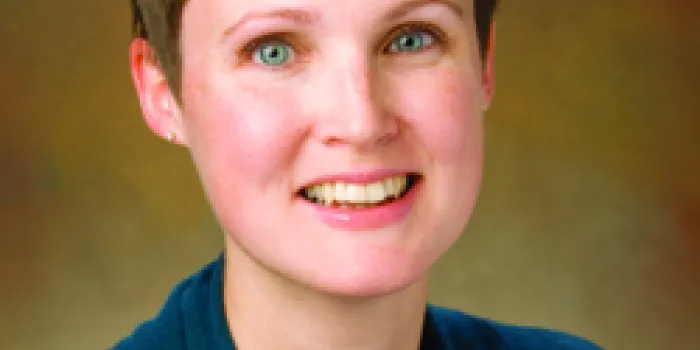HemAware is conducting a series of interviews with recipients of the NHF-Shire Clinical Fellowship. It is funded through the generous support of Shire. The objective of this grant is to increase the number of skilled clinicians committed to providing comprehensive care for individuals with bleeding disorders and to prepare candidates for academic careers.
This interview was conducted with Char M. Witmer, MD, attending physician at The Children’s Hospital of Philadelphia (CHOP). Witmer’s fellowship was funded from 2004-2006.
Why did you decide to study medicine?
“I was attracted to the combination of the study of science and caring for patients,” says Witmer. She received her medical degree from the University of Rochester (NY) School of Medicine and Dentistry.
What initially attracted you to hematology?
During her residency in pediatrics, Witmer took care of patients in the hematology service at CHOP, sparking her interest in hematology.
How did the training and mentorship you received as an NHF-Shire Clinical Fellow affect your decision to pursue clinical care and/or research in bleeding disorders?
“The two-year fellowship provided me with the opportunity to get specialized training in the clinical care of patients with hemostatic and thrombotic disorders,” says Witmer. “It also provided me an opportunity to get formal training in coagulation laboratory methods and clinical research.” The fellowship allowed her to take classes on clinical research methodologies at the University of Pennsylvania.
Are you still engaged in the clinical aspects of patient care or bleeding disorders research? What aspect of care are you most interested in?
Witmer is very much engaged in caring for patients and delving into research endeavors. “A portion of my research has focused on intracranial hemorrhage in hemophilia, a significant bleeding complication with an associated high morbidity and mortality.” Witmer’s efforts have focused on head trauma as a significant risk factor for intracranial hemorrhage.
Did your NHF-Shire Clinical Fellowship assist in your advancement at your institution? Or did it serve as a building block to further your career in coagulation?
“It was a building block that supported me during a very important time early on in my career,” she says. “It provided me with the protected time to focus on my specific interest in hemostasis and thrombosis.”
Where do you think bleeding disorders research and clinical care may be headed in the near future? Within the next decade?
Witmer foresees an increase in collaborative efforts on a larger scale, which will help answer questions that couldn’t be answered previously because of small patient populations. “For example, a current international study is looking at plasma-derived vs. recombinant factor exposure and the risk for inhibitor formation.” She also forecasts an era of new products for patients and more effort devoted to predicting which patients will develop inhibitors and preventing their formation.
How do you relax or “escape” from your work?
Witmer’s hobbies are baking, painting and card making. When asked about her dessert specialties, she says “anything chocolate.” She enjoys painting landscapes and flowers, using oils or watercolors. Witmer uses her cards to convey a personal message or to commemorate a special event. “I think it’s that much more thoughtful when it’s made by hand.” Her cards are adorned with fabric, ribbons or paper crafting.
These hobbies have earned Witmer a reputation at work. “I might be called the Martha Stewart in our division,” she says.

